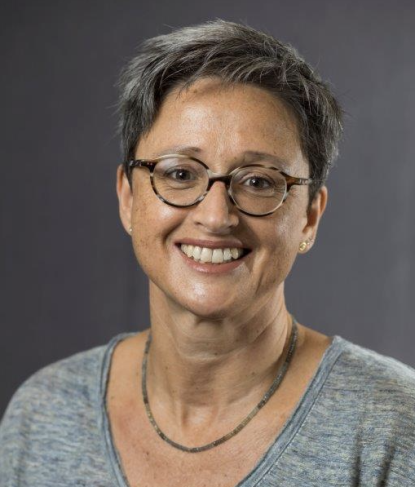About us…
Using mathematically rigorous and algorithmically diverse tools we seek to understand the nature of representation and computations that give rise to intelligent behaviour. There is a fair amount of flexibility in the actual choice of project, as long as the project excites both the candidate and Prof. Yu. For example, Prof. Yu is currently interested in investigating scientific questions such as:
- How is socio-emotional intelligence similar or different from cognitive intelligence? Is there a fundamental tradeoff, given the prevalence of autism among scientists and engineers? How can AI be taught socio-emotional intelligence?
- How are artificial intelligence (e.g. as demonstrated by large language models) and natural intelligence (e.g. as measured by IQ tests) similar or different in their underlying representation or computations?
- What roles do intrinsic motivations such as curiosity and computational efficiency play in intelligent systems?
- How can insights about artificial intelligence improve the understanding and augmentation of human intelligence?
- Are capacity limitations with respect to attention and working memory a feature or a bug in the brain? How can AI system be enhanced by attention or WM?
More broadly, Prof. Yu’s group employs and develops diverse machine learning and mathematical tools, e.g. Bayesian statistical modelling, control theory, reinforcement learning, artificial NN and information theory, to explain various aspects of cognition important for intelligence: perception, attention, decision-making, learning, cognitive control, active sensing, economic behavior, and social interactions. Participants who have experience with two or more of the technical areas, and/or one or more of the application areas, are highly encouraged to apply.
Angela Yu holds an Alexander von Humboldt Professorship at TU Darmstadt, which is intended to strengthen the theoretical and methodological core expertise of TU Darmstadt and promote the integration of AI and cognitive sciences.
As part of the Centre for Cognitive Science at TU Darmstadt, the Hessian AI Center, as well as the Computer Science Department, Prof. Yu’s group members are encouraged and expected to collaborate extensively with preeminent researchers in cognitive science and AI, both nearby and internationally.
All positions will be based at TU Darmstadt, Germany. Starting dates for the positions are flexible. Salaries are commensurate with experience and expertise, and highly competitive with respect to U.S. and European standards. The working language in the group and within the larger academic community is English. Fluency in German is not required; the university provides free German lessons for interested scientific staff.
Your tasks…
In particular, the tasks include:
- Management and coordination of all necessary tasks in the field of conception, implementation and testing of algorithms in connection with the improvement of using AI to better understand human intelligence, and/or using scientific insights from human cognition to build better AI systems,
- Theory and model building,
- Writing scientific reports and publications,
- Supervision of student assistants.
Your profile…
- For PhD applicants a master’s degree (or equivalent) in cognitive science, machine learning/AI, or a related field is required
- For applicants with only a bachelor’s degree: Please enquire about working with Prof. Yu as a master’s student and/or research assistant.
- Postdoc candidates should have a PhD in cognitive science, machine learning/AI, computational neuroscience, or a related field, as well as having conducted published research with mathematical rigor and broad impact in cognitive science and/or AI.
- Advanced knowledge in machine learning and/or cognitive science is an advantage. More importantly, however, are excellent mathematical and analytical skills, as well as programming knowledge,
- High level of self-motivation, reliability, creativity and the ability to discuss, draft and present scientific results in English,
- High potential for excellent, independent research on challenging scientific problems as well as the ability to work in a team,
- Very good skills in English (business fluent) in spoken and written, very good skills in German are appreciated.
Contact…
If you have any questions about this position, please contact Prof. Yu (angela@angelayu.org).
Your application should be written in English and include cover letter, CV, undergraduate and graduate transcripts, contact info for 2-4 references, as well as a statement of research detailing the candidates’ research interest and expertise, as well as an explanation why the candidate and Prof. Yu’s group are a particularly good fit for each other (references to prior published research appreciated). Please highlight in the email how the candidate has met the aforementioned requirements. The subject of the email should be “PhD/Postdoc application for computational modelling of intelligent systems.”
TU offers…
Technical University of Darmstadt offers varied and challenging assignments, freedom to work independently, the latest technologies, good collaboration between colleagues in partnership, needs-based training opportunities and customised personnel development.
The fulfillment of the duties likewise enables the scientific qualifications of the candidate.
- Development and organisation – comprehensive in-house training offers, including the opportunity for continuing education and development;
- Annual leave/educational leave – 30 days annual leave (full-time employment) and 5 days educational leave;
- Sustainable and mobile – eligibility to free public transport in the state of Hesse with the LandesTicket Hessen (Hesse StateTicket) in accordance with the currently valid collective agreement, in addition to opportunities to working mobile at times;
- Fit and healthy – free of charge preventive medical check-ups and a wide-ranging subsidised sports programme;
- Work-life balance – flexible working time models, plus BGM (Betriebliches Gesundheitsmanagement – University Health Management);
- Pension scheme – supplementary public service pension scheme (VBL) in accordance with the currently applicable regulations;
- University bicycle
- Family-friendliness/compatibility of family/care/career – (university-run) childcare services, child allowance (based on the collective agreement), childcare programmes during school holidays



